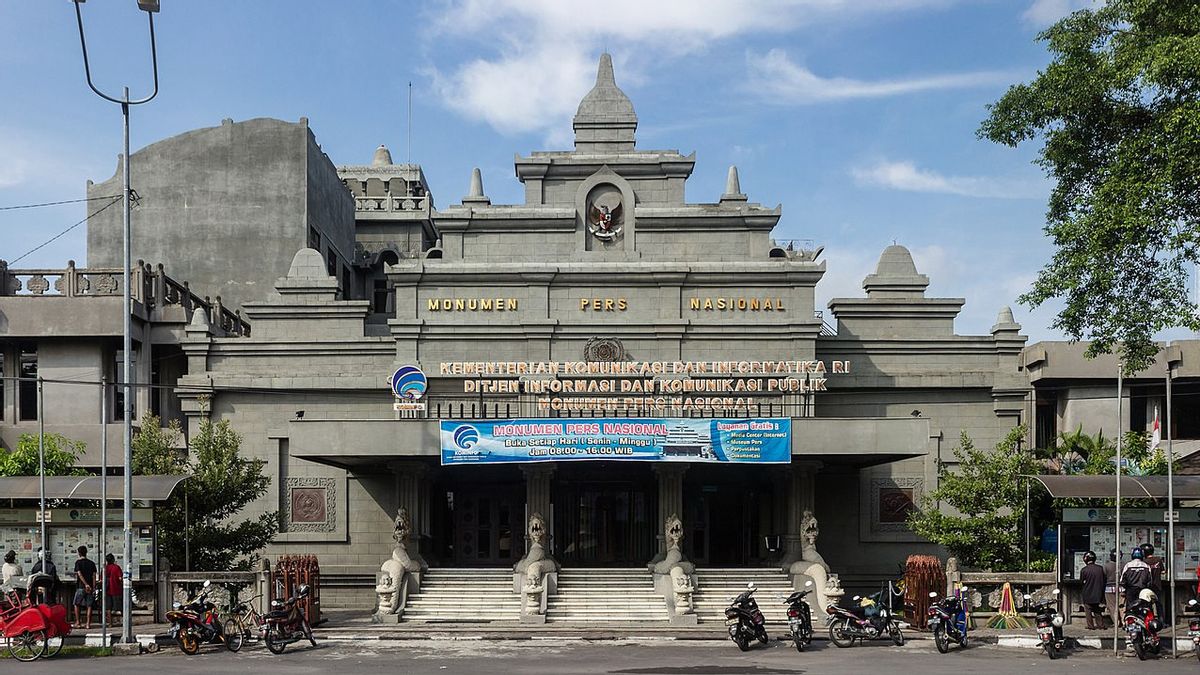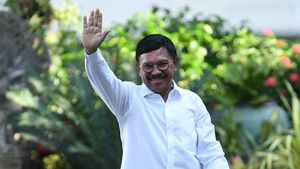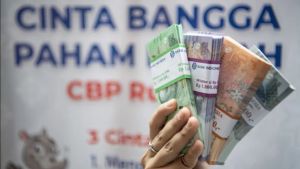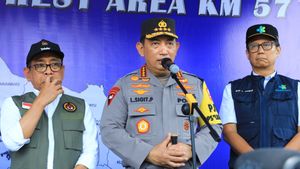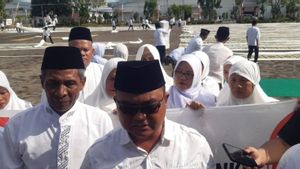JAKARTA - Suharto and the New Order (Orba) are fond of doing anything to maintain a positive image. They believe that the New Order's positive image can maintain national stability. While he considered a bad image as a destroyer of peace. The education and control of the mass media became his teachings.
All national mass media that carry Suharto's bad narrative or New Order are punished. Nothing can be separated. The hobby of educating the media has become a characteristic of the New Order. Even though the idea of organizing National Press Day is being discussed.
The fate of the Indonesian press world is like getting a breath of fresh air during the reigns of Suharto and the New Order. All of this was because during the Old Order, press freedom was impossible. Suharto also took an important role as a media officer.
He is hailed to be able to bring Indonesia to a better direction and maintain press freedom. In fact, far from being burned. New Order only provides one room for news. Positive image, his name. All kinds of bad images related to the New Order will not be accepted.
The New Order government also perpetuated media education and control. Everything is to maintain a positive image of the New Order. In order to maintain national stability, he said. The Security and Order Recovery Command (Kopkamtib) was also given the task of controlling the mass media. Anyone who brings a negative color related to the government will be dealt with firmly with the election.
This effort was shown by the New Order in January 1978. The owner of power has perpetuated the election of seven national mass media. These include Tempo Magazine, Kompas Daily, Sinar Harapan, Merdeka, Pelita, The Indonesian Times, and Sinar Pagi.
At that time, the issue of student demonstrations was about government development policies, especially regarding the involvement of foreign investors, Chinese-derived businessmen and government officials. The special targets of criticism at that time were the president's family. Until then, there was a call to the president to take the throne down.
This wave took place evenly in a number of well-known campuses. This, once again, is a press meal, including the most moderate. In January 1978, Kopkamtib responded to the action by suppressing the entire Senate council of existing students, revoking the permits of seven Jakarta newspapers and seven student press papers," said David T. Hill in the book Pers during the New Order (2011).
The series of education became a bad gift for the celebration of the Birthday, the 32nd Indonesian Journalists Association (PWI) in Solo on February 9, 1978. President Suharto, who also just inaugurated the Press Monument at the same event, thought that the mass media in Indonesia had recently been almost out of control. As a result, the government took firm action by conducting education.
This effort is so that the existing mass media continue to rely on perpetuating free but responsible efforts. Suharto also gave a strong warning to the media who continued to perpetuate criticism of the government.
Suharto and the New Order will take firm action to bring order to this. For him, the press must be introspective. The press must know which issues can disrupt national stability and which are issues that can maintain national stability. He conveyed the message to serve as a guideline to all editors of mass media in Indonesia.
Furthermore, in the midst of the government's hobby of recruiting mass media, PWI is working on the birth of the National Press Day celebration. the proposal was made at the 16th PWI Congress in Padang City, West Sumatra, 4-7 December 1978.
In fact, National Press Day became one of the important points in the decision of the 16th PWI congress which was then followed up by the New Order government through Presidential Decree No. 5 of 1985. Therefore, National Press Day was officially celebrated every February 9 since 1985, which incidentally was the birthday of PWI.
"As of the end of January 1978, press freedom has developed almost uncontrollably. This condition brings danger to the stability of dynamic national stability. If this is little more allowed to develop, it will almost pose a danger to the safety of the nation and state."
"It is not fun for the government to temporarily ban the issuance of a number of media. But here we are not faced with an unfavorable choice, but the only option for the safety of the nation and state, as well as the interest in developing a free and responsible press," said Suharto in the 32nd anniversary of PWI as quoted by St. Sularto in the book Soyur No End: Traces of Jakob Oetama's move (2011).
The English, Chinese, Japanese, Arabic, and French versions are automatically generated by the AI. So there may still be inaccuracies in translating, please always see Indonesian as our main language. (system supported by DigitalSiber.id)
